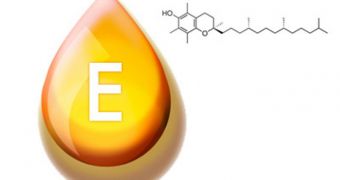In a new investigation carried out on children, investigators determined that burn wounds tend to have a rapid negative effect on the human body, in addition to the initial damage. Burns also deplete vast amounts of vitamin E, especially from the adipose tissues.
The clinical study was conducted on 8 kids that had suffered third-degree burns over a large surface of their bodies. Experts tracked amounts of vitamin E in fat tissues as they dropped over a few weeks.
In all, the scientists say, more than 50 percent of all the body's vitamin E reserves were depleted, even when the doctors were administering 150 percent the daily recommended dose of the chemical.
At this point, the investigators are not exactly sure what effects this depletion has on the body, but they write in their report that ““the depletion of vitamin E may be a very significant problem in patients with burn injury.”
One possible association could be that this lack of the substance causes peripheral neuropathy, which is a condition that inflicts nerve damage. It often affects patients that have burn injuries.
Previous investigations have determined that a majority of people with vitamin E deficiency are prone to developing the condition, so a correlation may exist between the two. However, no scientific studies have been conducted to test this idea.
Experts also recognized the need to conduct more investigations into determining whether given people with burn injuries excessive amounts of vitamin E could reduce depletion and avert neuropathy.
“This is one of the first studies we’ve done that measures vitamin E in the body tissues of children. Vitamin E in adipose tissue does not fluctuate much on a short-term basis,” says expert Maret Traber.
The scientist is a professor at the Oregon State University Linus Pauling Institute, the principal investigator of the study, and a leading global authority on issues related to vitamin E.
“To find this level of vitamin E loss in such a short time was dramatic, unexpected and somewhat alarming,” the professor explains, quoted by Science Blog.
Experts at the Institute collaborated with colleagues from the Shriners Hospital for Children in Galveston, Texas and the University of Texas Medical Branch in Galveston for this investigation.
Details of the work are published in the latest issue of the medical journal American Society for Nutrition.
“Unfortunately, with the modern American diet too many people are getting most of their vitamin E from foods that aren’t particularly good for them, things like ice cream or potato chips,” Traber says.
“It’s probable that most people don’t get enough of this vitamin at all, and that’s one of the reasons we’re looking at people who have suffered severe illness or injury, in which vitamin E deficiencies may complicate other health problems,” the expert concludes.

 14 DAY TRIAL //
14 DAY TRIAL //